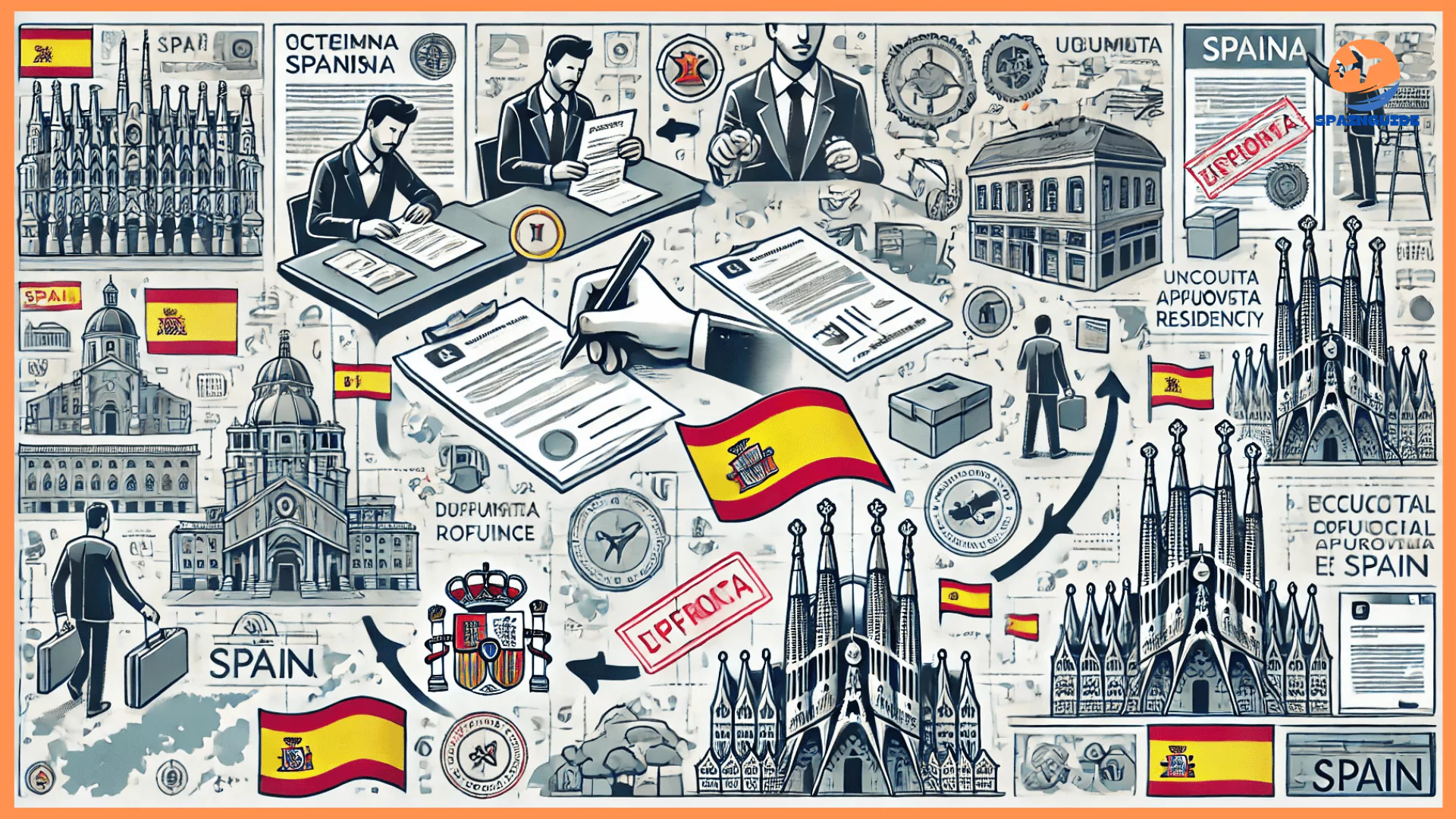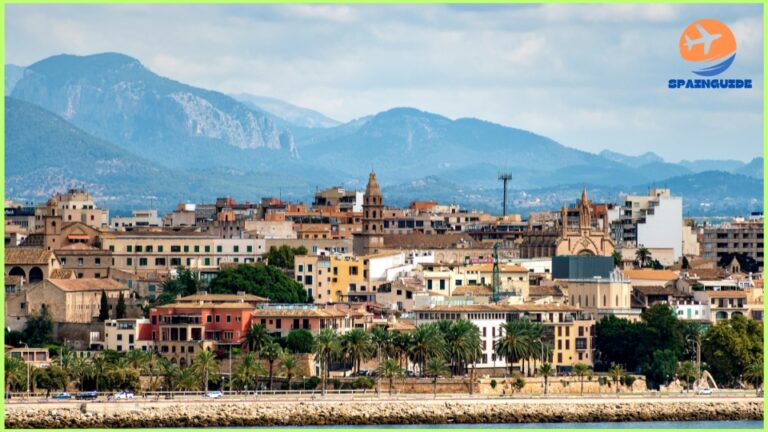Long the number one destination for expatriates, retirees, and people looking for a new life in the sun under the Mediterranean, Spain has emerged. Whether moving for work, studying, retiring, or enjoying this fantastic lifestyle of Spain, the acquisition of Spanish residency is one of the main steps. The guide will be a comprehensive look into how you get your residence permit in Spain for a seamless, easy, and successful process.
Understanding Spanish Residency
What Is Spanish Residency?
Spanish residency grants individuals the legal right to live in Spain for an extended period. Whether you’re moving for work, family, or retirement, having a residence permit ensures that you comply with Spain’s immigration laws and gain access to various benefits.
In Spain, why is a residence permit required?
A residence permit is essential for living legally in Spain for more than 90 days. It allows non-EU citizens to work, study, or settle in the country while providing access to essential services like healthcare and education.
Types of Residency Permits in Spain
Spain offers multiple residency permits to cater to diverse needs:
Temporary Residency
This permit is ideal for individuals planning to stay in Spain for more than three months but less than five years. It covers work permits, student visas, and family reunification.
Permanent Residency
Permanent residency is granted after legally residing in Spain for five continuous years. It allows individuals to stay indefinitely, enjoy similar rights to Spanish citizens, and avoid the need for frequent renewals.
Eligibility for a Spanish Residence Permit
General Requirements
To apply for Spanish residency, you’ll need:
- A valid passport.
- Proof of financial stability.
- Health insurance coverage.
- A clean criminal record.
- Purpose-specific documentation (e.g., employment contract, marriage certificate).
Special Categories for Residency
Certain applicants qualify for specialized permits, such as:
Family Members of EU Citizens
Close relatives of EU or EEA citizens residing in Spain can apply for residency under preferential terms.
Golden Visa Applicants
Investors who purchase real estate worth at least €500,000 or meet other investment thresholds can apply for the Golden Visa, which offers residency with additional benefits.
Applying for a Spanish Residence Permit
Key Steps in the Application Process
Gathering Necessary Documents
Proper documentation is critical. Essential documents may include:
- Passport copies.
- Proof of accommodation in Spain.
- Employment or study-related paperwork.
Submission Process
Applications are typically submitted at the local Foreigners’ Office (“Oficina de Extranjería”) or via an online portal, depending on the permit type.
Timeline and Processing Duration
Processing times vary based on the permit category but generally range from one to three months.
Common Mistakes to Avoid During the Application
- Submitting incomplete forms.
- Failing to translate documents into Spanish.
- Missing submission deadlines.
Benefits of Obtaining Spanish Residency
Access to Healthcare
Spain offers an excellent public healthcare system. Residency allows you to register with the national health service and receive affordable medical care.
Travel Freedom Within the Schengen Area
With a residence permit, you can travel visa-free across the Schengen Zone, opening up 26 European countries for exploration.
Opportunities for Employment and Education
Residents can access Spain’s vibrant job market and enroll in educational programs, including universities and vocational training.
Challenges and Common Issues
Language Barriers
Navigating Spain’s residency process can be tricky if you’re not fluent in Spanish. Learning basic Spanish or hiring a translator can be invaluable.
Understanding Legal Jargon
Residency laws involve complex terminology. Seeking professional legal advice can clarify confusing requirements.
Navigating Bureaucratic Processes
Spanish bureaucracy can be overwhelming, with lengthy queues and intricate paperwork. Patience and preparation are key.
Renewing Your Spanish Residence Permit
When and How to Renew
Renewing your residence permit is crucial to maintaining your legal status in Spain. Temporary permits typically need to be renewed before they expire, with the renewal period depending on the type of residency you hold. Start the renewal process at least 60 days before your permit’s expiration date to avoid potential penalties.
Required Documents for Renewal
To renew your permit, you’ll need:
- A completed renewal application form.
- A valid passport and copies of all pages.
- Proof of financial stability, such as bank statements or an employment contract.
- Proof of health insurance coverage.
- Evidence of continued residence in Spain, like utility bills or rental agreements.
Consequences of Failing to Renew on Time
Missing the renewal deadline can lead to hefty fines, legal complications, or even deportation. If your permit expires, you may also face challenges re-entering Spain or the Schengen Zone. Always prioritize staying ahead of renewal deadlines.
Transitioning to Permanent Residency
Eligibility for Permanent Residency
After residing legally in Spain for five consecutive years, you may qualify for permanent residency. During this period, you must have maintained your legal status and spent no more than ten months outside the country.
Differences Between Temporary and Permanent Residency
The major benefit of permanent residency is its undetermined validity, saving the applicant from frequent applications for renewal. It also gives almost equal rights to Spanish citizens, with full access to public benefits, employment opportunities, and housing support.
Acquiring Spanish residency can open your life to myriad opportunities, arguably in one of the most vibrant countries in Europe. From enriched cultural heritage to exemplary public services, a residence permit avails many reasons for individuals and families. While applying may appear quite overwhelming, paying attention to careful preparation and being aware of the needs will make the process manageable. Whatever your needs-maybe temporary or permanent-Spain has something in store for you.
QSA
Can I Apply Without a Job in Spain?
Yes, some types of residency, like the non-lucrative visa, will enable you to reside in Spain without work, provided you can prove you have enough money to support yourself.
How Long Does It Take to Get Residency?
The time it takes varies, but it usually takes one to three months. Complex applications and missing documentation cause delays.
Do I Need a Lawyer for My Application?
While it is not required, finding a lawyer or immigration consultant will ease the process for you in case you are not familiar with either Spanish laws or the language.
Can Residency Lead to Spanish Citizenship?
Yes, permanent residents can apply for Spanish citizenship after ten continuous years of residency, unless this is less for certain nationalities or circumstances.
What If My Application Gets Denied?
You will get a formal notification in case your application is rejected, showing reasons for such. You can apply again, after correcting those shortfalls, or appeal if you feel that such a decision was unfair.







